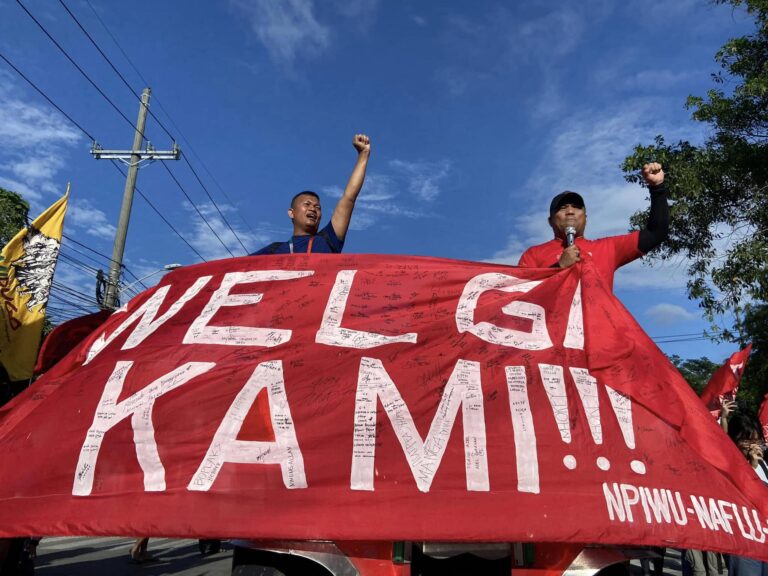
After four days of a labor strike that started from March 5 to 8, Nexperia workers and the Nexperia Philippines Workers Union (NPWU) succeeded in obtaining their demands from the management to reinstate two union leaders back to work, to increase the salary of the workers to more than PHP 50.00 (less than USD 1), and to not make any retaliatory actions against the workers who participated in the strike. These calls have been the long-term asks of the workers who have been engaged in a collective bargaining agreement (CBA) that Nexperia undermines, pushing the workers to finally hold a strike.
This historic win of Nexperia workers is a clear and concrete manifestation of workers’ resistance against the domination of big businesses, along with the grit of advocates and mass organizations in amplifying campaigns of workers to the broader public.
Who is Nexperia in the Philippines?
Nexperia is a global semiconductor company headquartered in the Netherlands, leading in the production and development of the said commodity for automotive, industrial, mobile and consumer applications. As years-long practices of such corporations, Nexperia brings its factories in several countries where production costs are low. At the same time, the company amasses large profits each year while its workers, such as in the Philippines, are given very low wages for the excessive amount of work they have to exert everyday.
In cahoots with the Philippine government’s labor department, many local and transnational corporations are given leeway to do business without proper regard to labor policies. In the case of Nexperia, the company has been notorious for violating labor rights such as freedom of association and being given proper wages and benefits. Even in this context, the Department of Labor and Employment (DOLE) in the Philippines continues to give permission to the company to do business as usual. Until the days of the strike, DOLE continued its collusion with the company as it served a motion of assumption of jurisdiction – a mechanism that disallows strikes to happen so as not to disrupt essential industries that are “vital to national interest.” But the workers and union members argued that Nexperia is not “indispensable to national interests”, citing such a scheme as an instrument to violate workers’ rights to unionize.
The workers who did it all
Behind the victorious win that the Nexperia workers gained in their 4-day labor strike was the union they formed years ago who have tirelessly supported its members through CBAs and battles with the company. The NPWU is one of the oldest unions in the Philippines who continue to struggle against the exploitative dominance of the companies over workers. And along with other unions and workers’ organizations, NPWU has been a part of the rich history of militant unionism in the Philippines.
The conclusion of Nexperia workers’ successful strike is a solid reflection of tireless organizing and education of workers about their rights and welfare. The work stoppage has actually resulted in a big loss to Nexperia’s profit accumulation. This is a great proclamation of the power of the workers to change not just the course of production, but to boost the strengthening of their ranks against exploitation. Through persistent organizing and collective support among workers, rights advocates, and mass organizations, strikes like the one done by Nexperia workers will forever be remembered by the working class.





